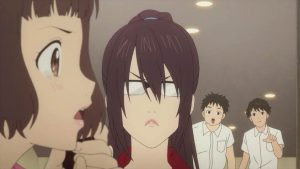 I’m seeing a lot of hate piled on this episode of Mashiro no Oto, and that surprises me a little. Given all the caveats you have to apply with this series, I thought it was quite good. For a show that’s better at music than anything else an episode this music-driven would figure to be a strong one. And for me it was, and even if the other parts were (as ever) not on the same level, I’ve seen a lot worse from Mashiro already. Different strokes I guess.
I’m seeing a lot of hate piled on this episode of Mashiro no Oto, and that surprises me a little. Given all the caveats you have to apply with this series, I thought it was quite good. For a show that’s better at music than anything else an episode this music-driven would figure to be a strong one. And for me it was, and even if the other parts were (as ever) not on the same level, I’ve seen a lot worse from Mashiro already. Different strokes I guess.
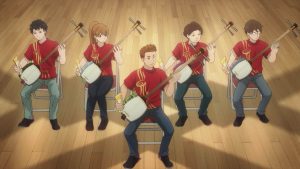 Without any question, the supporting cast isn’t an especially strong one here. The brightest spot by far is Wakana, whose relationship with Setsu towers above any other in the series. He knows his brother better than anyone, and sees the good in him that others are blind to. But Setsu’s clubmates are a pretty cookie-cutter bunch, so the delving into their backstories is generally pedestrian. Yui’s angst, Shuri’s terror, Kai’s daddy issues – none of it is exactly compelling. And the efforts at comedy tend to fall pretty flat. But it wasn’t bad this week, at least for me. They were actually acting like normal people might act under the circumstances at least, which I thought was progress. I just wish they weren’t such archetypes.
Without any question, the supporting cast isn’t an especially strong one here. The brightest spot by far is Wakana, whose relationship with Setsu towers above any other in the series. He knows his brother better than anyone, and sees the good in him that others are blind to. But Setsu’s clubmates are a pretty cookie-cutter bunch, so the delving into their backstories is generally pedestrian. Yui’s angst, Shuri’s terror, Kai’s daddy issues – none of it is exactly compelling. And the efforts at comedy tend to fall pretty flat. But it wasn’t bad this week, at least for me. They were actually acting like normal people might act under the circumstances at least, which I thought was progress. I just wish they weren’t such archetypes.
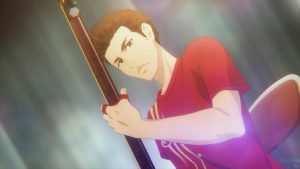 But the music… I can’t stress enough how good the music in this series is. And not the music itself being good, but the way it’s depicted both visually and aurally. Of course much of the music is very, very good. But only when it’s supposed to be. None of what we hear is awful – all of the pieces are played in technically competent fashion. What Mashiro no Oto does astonishingly well is communicate through the performances which pieces are exceptional, which are good, and which mediocre – and well enough that even a layman’s ear can appreciate the difference. If you think that’s easy, it’s not – I would say it’s spectacularly difficult.
But the music… I can’t stress enough how good the music in this series is. And not the music itself being good, but the way it’s depicted both visually and aurally. Of course much of the music is very, very good. But only when it’s supposed to be. None of what we hear is awful – all of the pieces are played in technically competent fashion. What Mashiro no Oto does astonishingly well is communicate through the performances which pieces are exceptional, which are good, and which mediocre – and well enough that even a layman’s ear can appreciate the difference. If you think that’s easy, it’s not – I would say it’s spectacularly difficult.
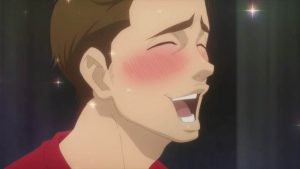 Among what we heard this week, I saw a common thread between the two standout performances. Arakawa Ushio’s Fukuoka team and Tanuma Mai’s Tohoku team were both somewhat undercut by the fact that they were transparently showcases for one soloist rather than true ensembles (naming the group “MaiMai and Friends” was a good clue). But while Ushio with his “Arakawa twang” gave a pleasing and flashy performance, it was clear than Mai and her group were better (even if Souichi – “it makes my ears hurt” – didn’t care for it). She herself was the better soloist – more expressive and interesting – and her support players were better integrated into the performance.
Among what we heard this week, I saw a common thread between the two standout performances. Arakawa Ushio’s Fukuoka team and Tanuma Mai’s Tohoku team were both somewhat undercut by the fact that they were transparently showcases for one soloist rather than true ensembles (naming the group “MaiMai and Friends” was a good clue). But while Ushio with his “Arakawa twang” gave a pleasing and flashy performance, it was clear than Mai and her group were better (even if Souichi – “it makes my ears hurt” – didn’t care for it). She herself was the better soloist – more expressive and interesting – and her support players were better integrated into the performance.
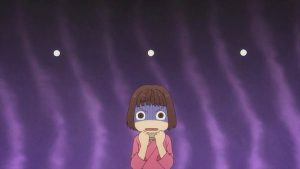 I have to say, I really loved that performance – and I don’t especially like Mai as a character. That was modern in the best sense – clearly distinct from the traditional sound we’ve mostly heard in this series, with a thrilling drive and energy. The shamisen is wonderfully suited to more modern forms of music and those who explore the possibilities of that are to be praised for it – even if the establishment in the undoubtedly narrow world of competitive shamisen probably finds it distasteful (maybe even Mai and Souichi’s father).
I have to say, I really loved that performance – and I don’t especially like Mai as a character. That was modern in the best sense – clearly distinct from the traditional sound we’ve mostly heard in this series, with a thrilling drive and energy. The shamisen is wonderfully suited to more modern forms of music and those who explore the possibilities of that are to be praised for it – even if the establishment in the undoubtedly narrow world of competitive shamisen probably finds it distasteful (maybe even Mai and Souichi’s father).
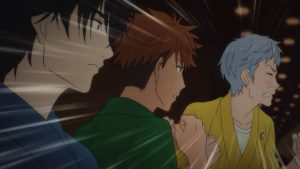 While the noobs in the Umezono club are justifiably intimidated after hearing Mai’s performance, for Setsu it’s just motivation. So much so in fact that he tells Rai – and only Rai – that he wants to try something “unorthodox” for the performance. I’m very curious to hear what that is, and I imagine after all this build up the Umezono performance won’t fall flat. Their best chance to actually win, I would think, would be to give the judges the traditionalist counterpoint to Mai’s modernist take. But I rather expect Mai’s team to win here, with Setsu going head-to-head with her brother for the individual crown as the adaptation’s climax.
While the noobs in the Umezono club are justifiably intimidated after hearing Mai’s performance, for Setsu it’s just motivation. So much so in fact that he tells Rai – and only Rai – that he wants to try something “unorthodox” for the performance. I’m very curious to hear what that is, and I imagine after all this build up the Umezono performance won’t fall flat. Their best chance to actually win, I would think, would be to give the judges the traditionalist counterpoint to Mai’s modernist take. But I rather expect Mai’s team to win here, with Setsu going head-to-head with her brother for the individual crown as the adaptation’s climax.


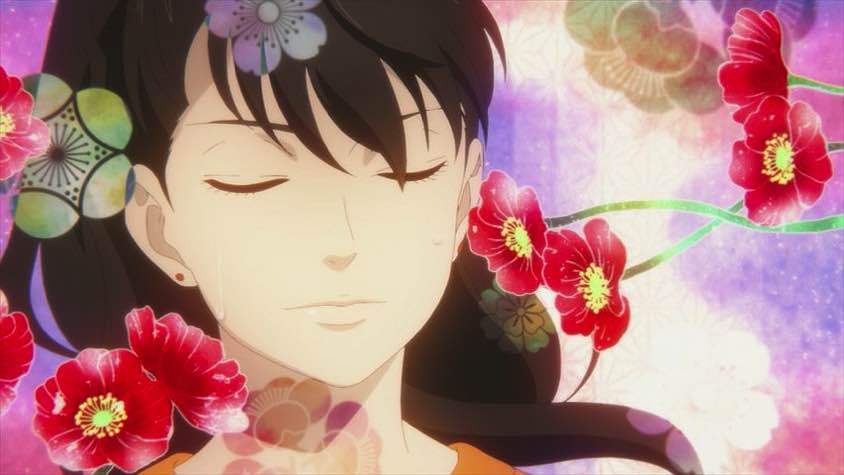

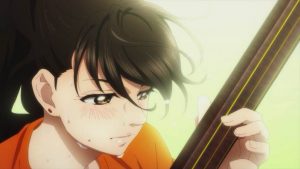
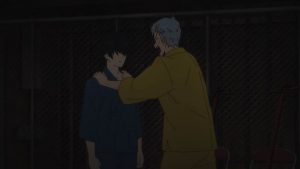
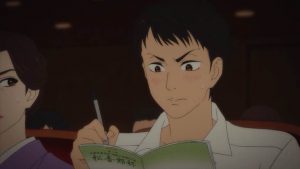


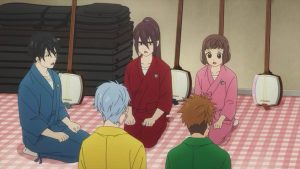
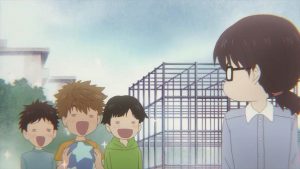
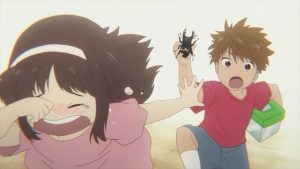

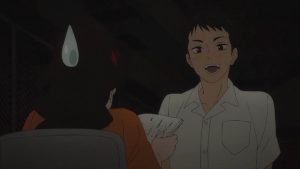

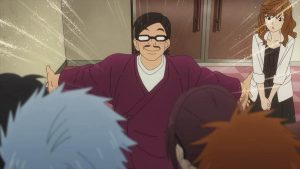
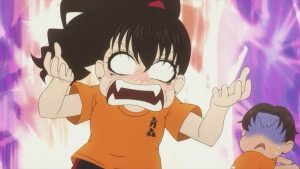
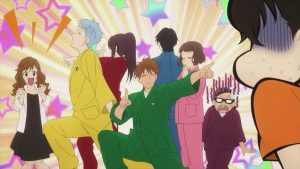

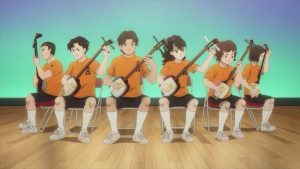

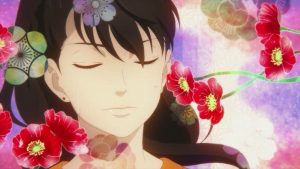
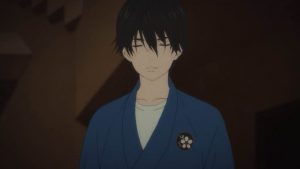


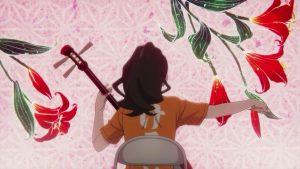




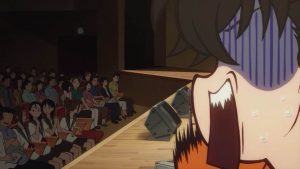


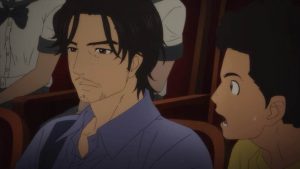


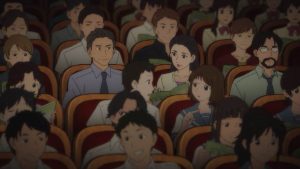


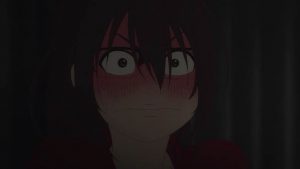
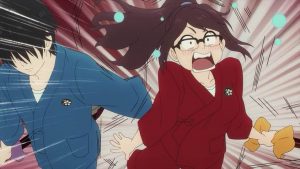
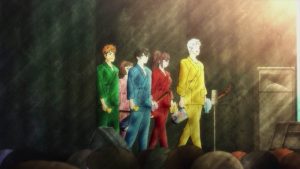


leongsh
May 22, 2021 at 5:36 pmI have no dispute with the music. It’s the main thing that’s keeping me to continue watching it. Setsu’s personal development as an artist contributes a small part. The rest is meh…
Snowball
May 22, 2021 at 6:14 pmThe music is exceptional and I do love Mai’s performance. Probably my first experience with the shamisen is it being used in modern pieces of music and I really enjoy those. This show does particularly well in making me engrossed with the more tradition music. However, the pedestrian stuff was particularly hard to stomach this week, it was like the gap between heaven and hell.
Riv
May 24, 2021 at 5:49 amI would never read the manga, that’s for sure. Without being able to hear the music, I don’t think I would have been able to get over the pedestrian aspects. And I agree, it’s very impressive how you can really hear the difference between the mediocre performances and the really good ones.
Guardian Enzo
May 24, 2021 at 1:23 pmYeah, that really highlights the difference with Kono Oto Tomare, which is a great manga. Because it has great characters and doesn’t rely on tropes. I am enjoying the anime here but likewise have no urge whatsoever to read the manga.
Color2413
May 27, 2021 at 5:12 pmEnzo, I think you pretty much nailed it. I would go further and say that this episode’s heavy-breathing character development was so melodramatic and irritating that I could hardly bear watching it. For the first time, I thought seriously about dropping the shop. But, as you say, the music…
When hearing the performances, I began to wonder if the shamisen , being a fretless instrument, could be adapted to styles other than the more-or-less traditional Japanese one using the pentatonic scale with lots of note bending to keep things interesting. In principle, the shamisen could play all 12 notes of the Western chromatic scale, which opens up endless harmonic possibilities, although an individual shamisen would be limited the three-note chords (triads) because, unlike a guitar, it has only three strings. But there is a lot of chromatic and jazz harmony one can imply with three-note chords.
I wonder if any performer in Japan has explored these possibilities.
Guardian Enzo
May 27, 2021 at 7:00 pmI’ve seen them do it live, so the answer is yes. Blues, jazz, Celtic – you name it, shamisen players are playing it.